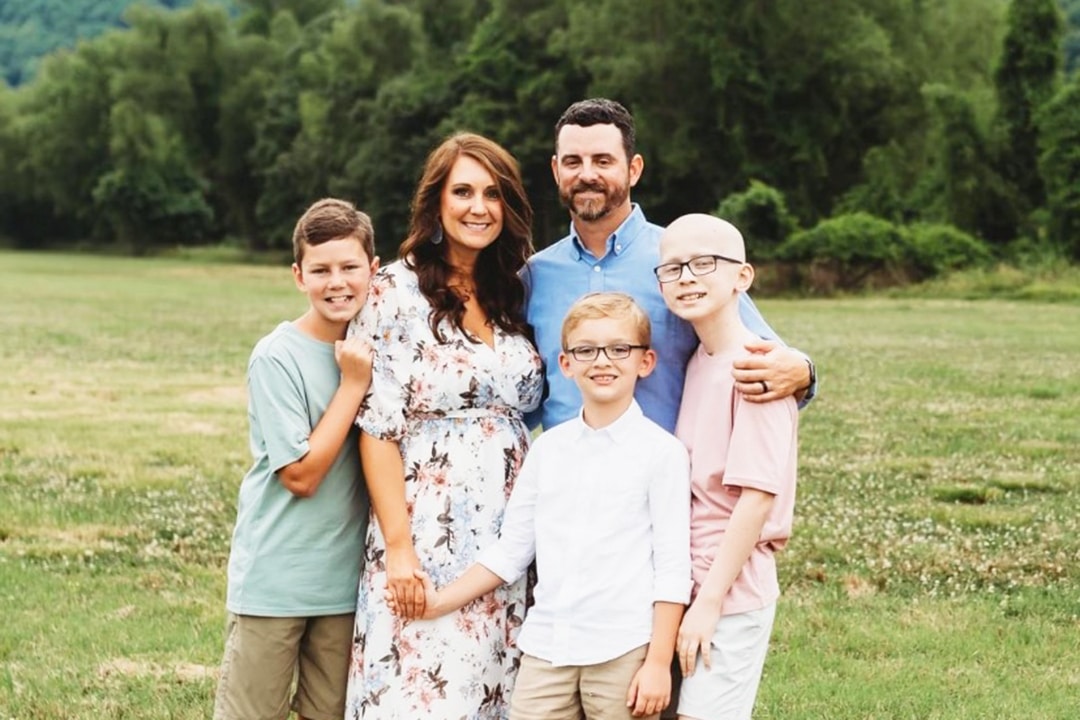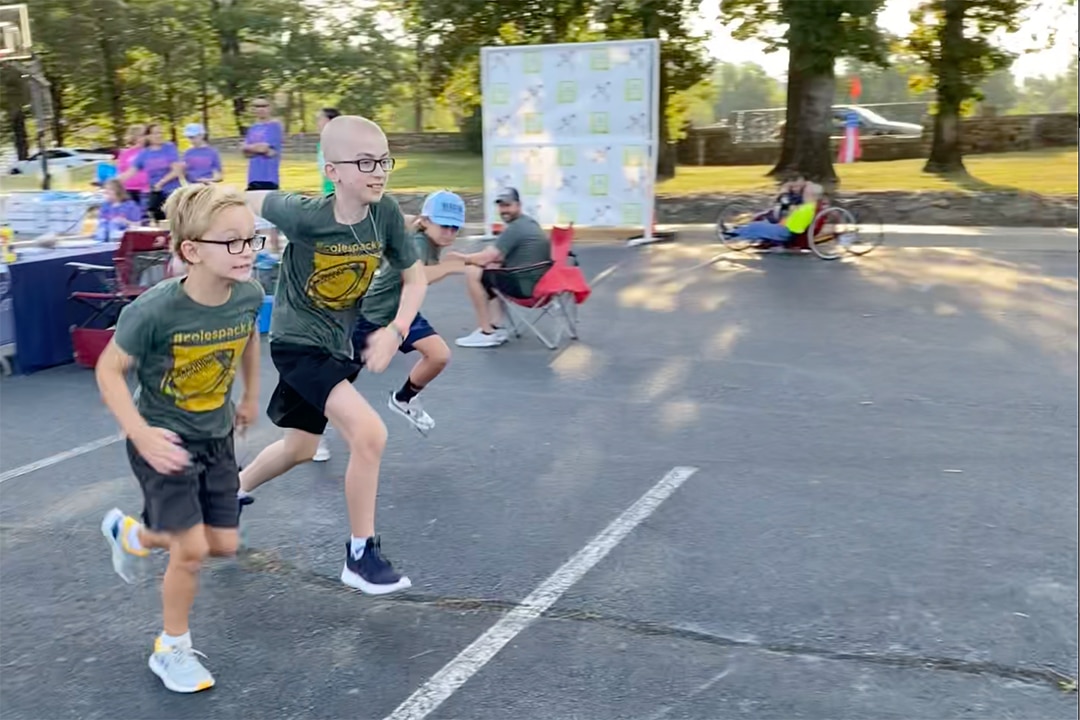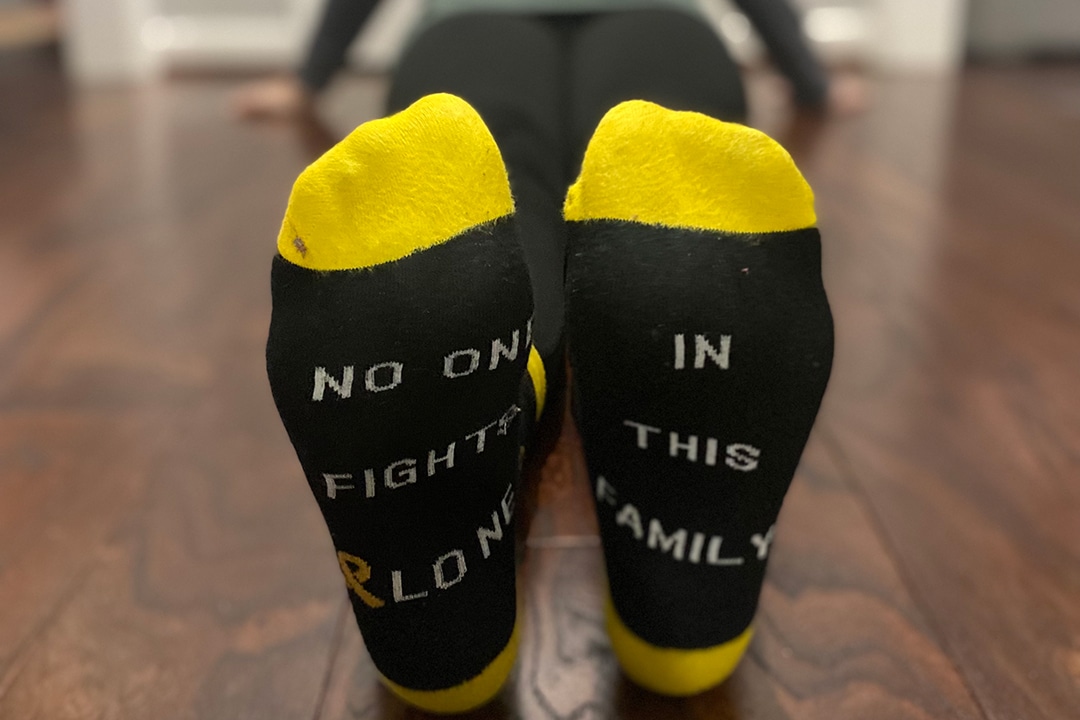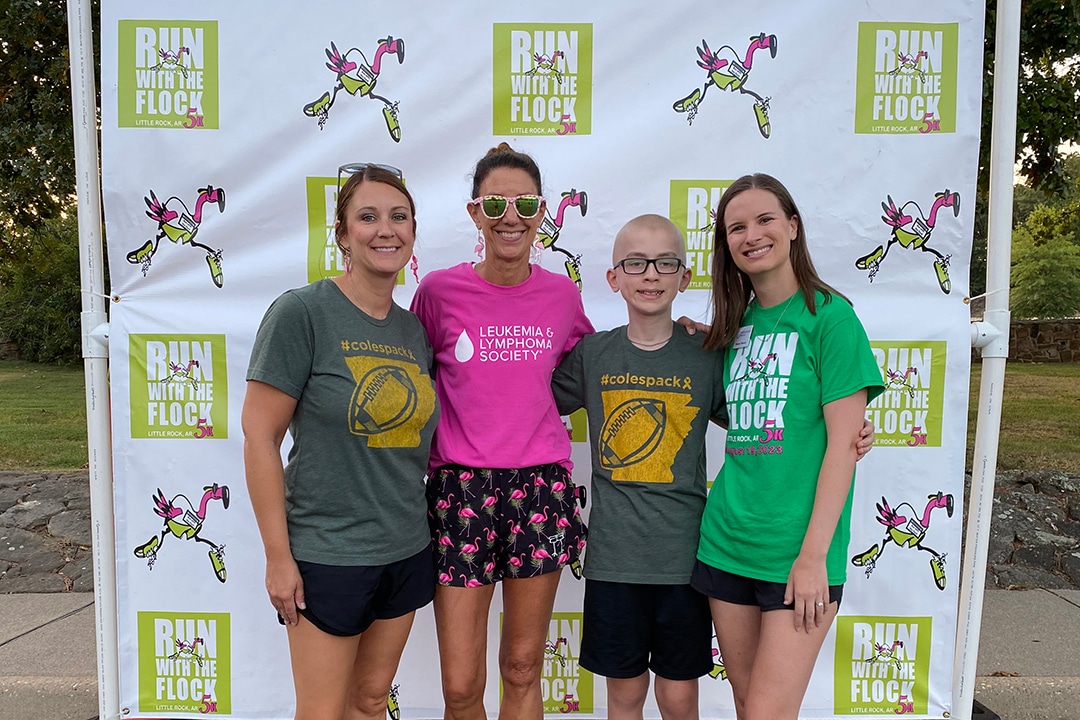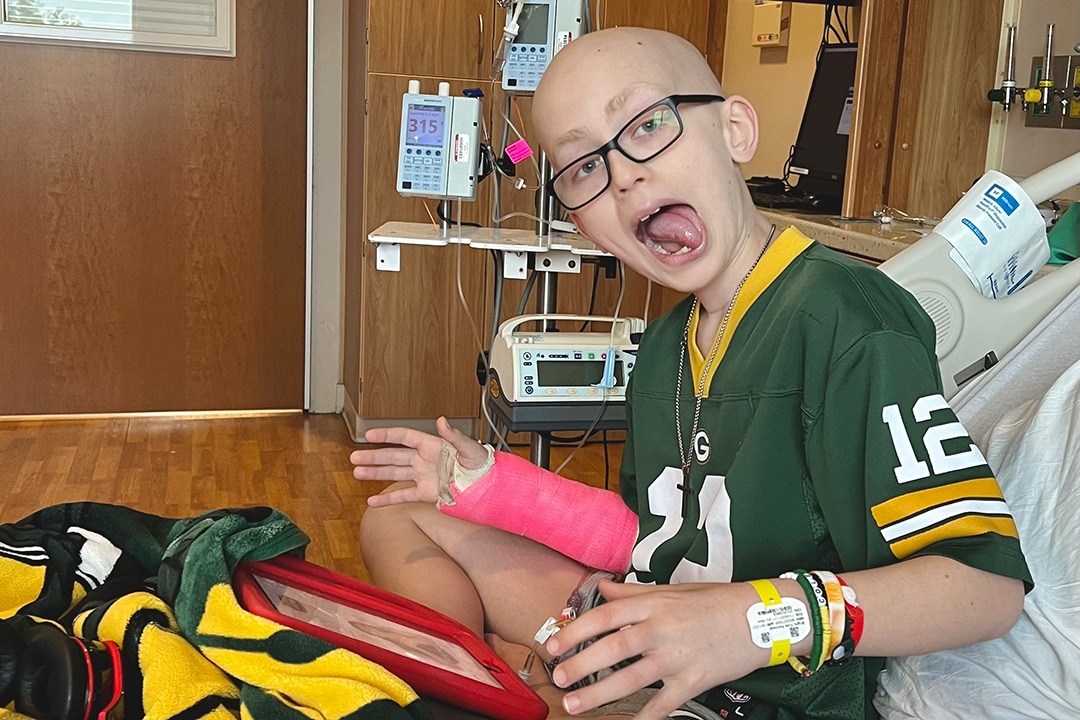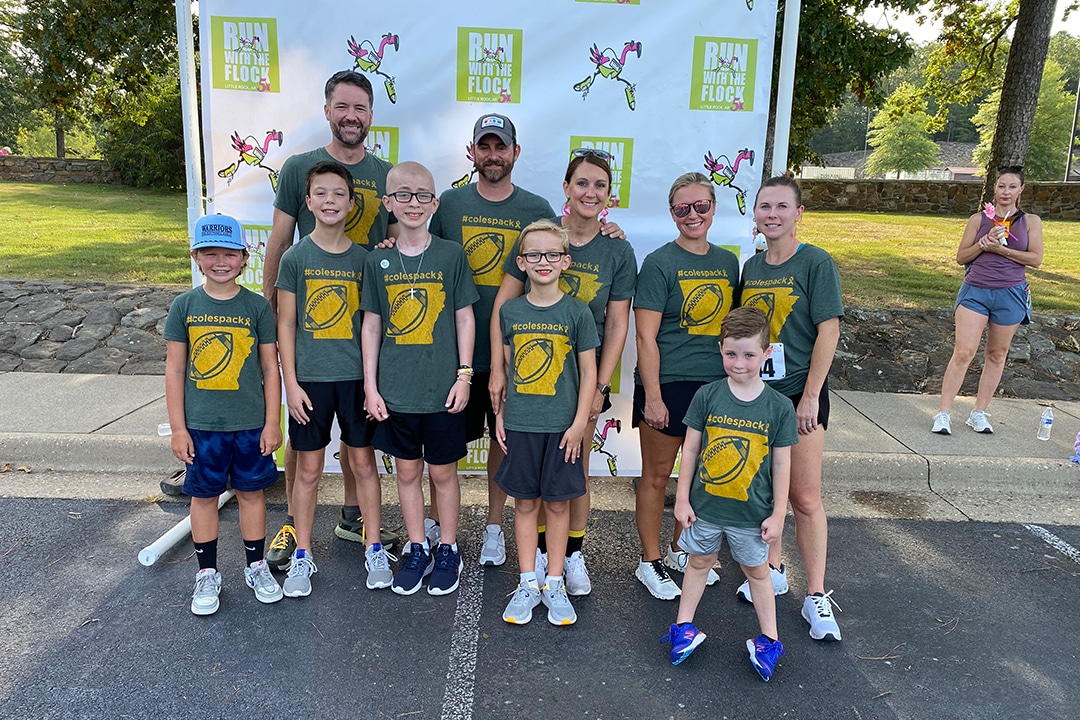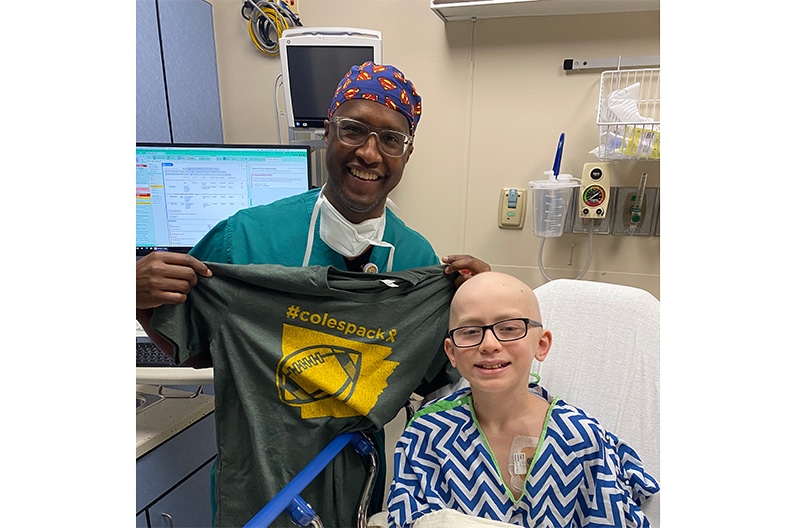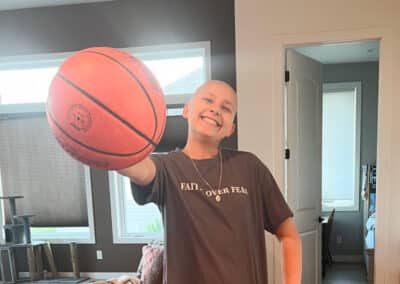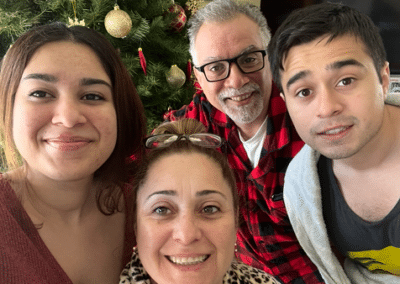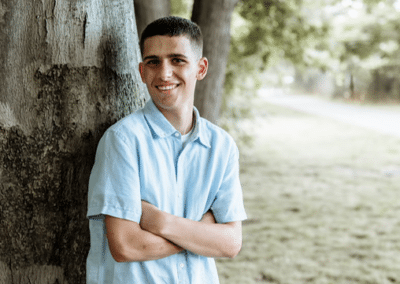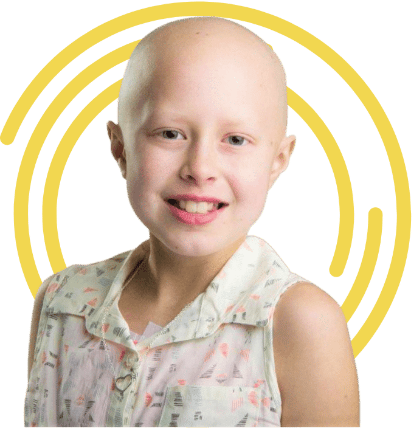The Diagnosis
At first, Sarah thought Cole’s wrist hurt from playing too many video games — carpal tunnel, she assumed. A week later his wrist was swollen to the point that it looked broken. The moment his doctor called and said they saw something on Cole’s X-ray, Sarah knew it was cancer.
“My husband kept saying, ‘We do not know yet,’ but I knew,” she says.
Still, while the signs pointed to the mass on Cole’s arm being malignant, the family did not receive an official diagnosis for an agonizing 30 days.
“I was sick over it. They had to do two biopsies and send them to Miami for review,” Sarah says. “Dr. Andrew Rosenberg, who is a world-renowned pathologist, diagnosed it as osteosarcoma mixed type.”
The Shock of Treatment
Cole’s treatment began three days after his diagnosis was confirmed, but Sarah says she felt wholly unprepared for what was to come.
“No one told me what to expect,” she says. “They said everybody is different, but people’s experiences of cancer have got to be somewhat close, right?”
Sarah says that first treatment was grueling. Cole vomited nearly every 30 minutes for 24 hours straight. Neither Cole nor Sarah slept a wink. Sarah could not comprehend how they were going to survive 17 more treatment cycles. Still, they pressed forward.
Cole started having anxiety, too. The chemotherapy was so toxic and the resulting illness so unrelenting that he began to experience anticipatory vomiting.
“He would throw up the second we got out of the car in the parking lot,” Sarah says. “He was really depressed during that time.”
Cole shared with his mother much later that the treatments were so awful that at one point he contemplated suicide. Sarah wishes that Cole’s oncology team had offered mental health services.
“I get that they are focused on the physical medicine,” Sarah says. “I just wish that mental health therapy would have been part of his treatment plan.”
When Treatment Ends
As time went on, the family slowly learned which medications made Cole the sickest and which were more tolerable. Sarah and her husband, Zach, were open with Cole and allowed him a say in his treatment plan, giving him the option to refuse some of the medications. “We adopted a kind of ‘your body, your choice’ mentality with him,” Sarah says.
Cole had limb-sparing surgery in February 2023 and completed chemotherapy in July 2023. In August, Cole got to ring the bell, signifying he is cancer-free. He celebrated with his family, friends, and supporters with a Green Bay Packers-themed party.
However, Sarah quickly learned that being in remission can be a struggle, too.
“It is weird because you have all this support throughout treatment and then you get the ‘all clear,’ and everyone disappears,” she says. “There is a loneliness aspect. People are not checking in on you anymore, and they are not asking questions or visiting. It is a really, really hard adjustment.”
The Possibility of Relapse
Cole has since returned to school and is thriving, although he will never be able to bend his wrist again. He also worries about the possibility of his cancer coming back.
“Cole asked what his chances are of relapsing, and I told him that he has a higher chance of not relapsing,” Sarah says. “I said that with anything, there is a chance. There is a chance I could step outside and fall over dead, but we just cannot live our lives focused on that chance.”
And while she herself understands that to be true, Sarah struggles with caregiver anxiety living with the possibility of recurrence.
